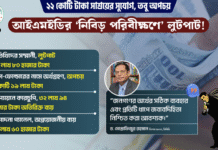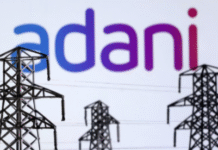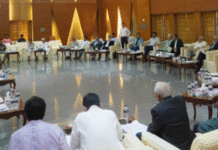
The interim government aims to hold the national parliamentary elections in December. However, if that is not possible for any reason, the election may be postponed by up to a month, sources close to the interim administration and the chief adviser have indicated.
According to these sources, December remains the most likely timeframe for the elections. However, if delays occur, many government insiders believe the elections will be scheduled for January next year.
This is because Ramadan begins in February, making it difficult to conduct elections within the following two months, which also includes Eid-ul-Fitr.
Additionally, the storm season (Kalbaisakhi) and the monsoon would follow, making election arrangements challenging. If elections do not take place in December or January, they might be pushed back to early 2026.
Meanwhile, M Sakhawat Hossain, the interim government’s advisor to the Ministry of Shipping and Labour and Employment, told The Daily Star in an interview last Thursday that the election schedule could be announced around October.
He stated, “If I am not mistaken, I am getting hints that the schedule could be announced around October, elections in December, and a new government could be formed by January.”
The Election Commission (EC), constitutionally responsible for organis ing elections, will ultimately decide the date. However, in the current political climate—following the fall of the Awami League government due to the student uprising—the timing of the elections will largely depend on a consensus between the interim government and political parties. The EC is awaiting the government’s decision, but is preparing on the assumption that elections will be held in December.
Several political parties, including BNP, Jamaat-e-Islami, and the Left Democratic Alliance, have met separately with the EC this month to discuss election preparations. Both BNP and the Left Alliance have demanded national elections within this year and previously opposed holding local government elections first.
In contrast, Jamaat-e-Islami has not set a specific timeframe for national elections. Instead, they have supported holding local government elections before the national polls and emphasised reforms before elections.
In addition, the Anti-Discrimination Student Movement and the Jatiya Nagorik Committee, which led the mass uprising, favour holding local government elections first. They have repeatedly made their stance clear and have called for elections only after reforms are implemented.
Following the fall of the autocratic Sheikh Hasina government due to the student-led mass uprising, an interim government, headed by Professor Muhammad Yunus, took charge.
In his address to the nation on 16 December, Chief Adviser Professor Muhammad Yunus outlined a possible timeline for the national elections. He stated that if only minimal reforms were pursued, elections could be held in December 2025. However, if more extensive reforms were undertaken, elections might be delayed until mid-2026.
Earlier, in a September 2024 interview with Reuters, Army Chief General Waqar-uz-Zaman pledged support for the interim government in carrying out key reforms to ensure elections within 18 months. He indicated that the elections would likely be held between November and December 2025.
One of the key objectives of the interim government is to implement reforms across various sectors. To achieve this, 11 reform commissions have been established. Among them, the commissions on the Constitution, Electoral System, Public Administration, Police, Judiciary, and Anti-Corruption have already submitted their proposals. Discussions within the ‘National Consensus Commission’ on these proposals with political parties have begun.
Political analysts note that despite the government’s emphasis on reforms, it has yet to fully stabilise the situation, particularly regarding law and order. Several incidents of unrest have taken place, creating uncertainty and anxiety among the public.
Given this backdrop, there is growing discussion that further delays in forming an elected government could lead to an unpredictable shift in the political landscape.









